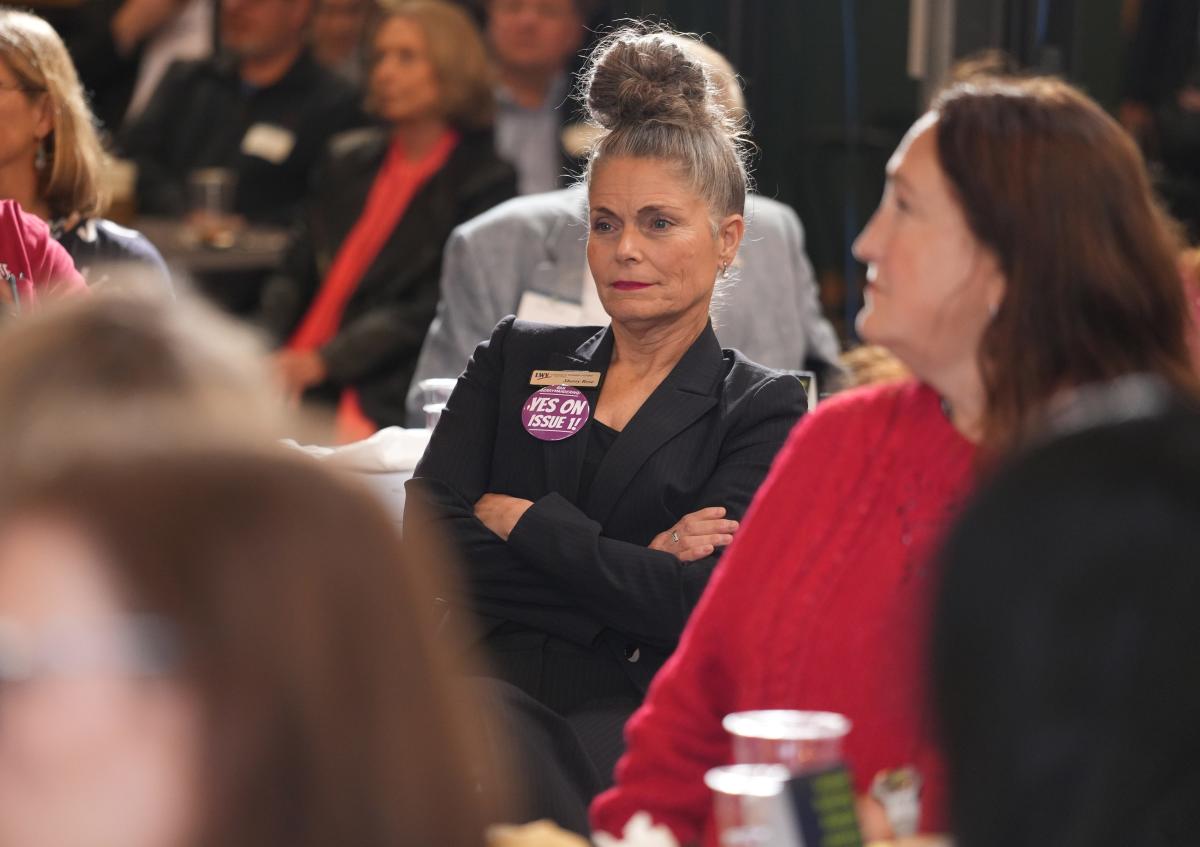Between now and nightfall on Election Day (Nov. 5), Ohio voters face a battery of pivotal decisions — starting with Issue 1, the “Citizens Not Politicians” plan, on the statewide ballot.
The General Assembly’s rigged districts have cursed Ohio with a legislature more avid at hunting for headlines than seeking solutions to the state’s challenges. A “yes” vote on Issue 1 would assure Ohioans that their legislature fairly represents them – and addresses their real concerns.
Ask any Ohioan, especially in Northeastern or Appalachian counties, if she or he is better off because of how the incumbent legislature divides voters over so-called social issues instead of uniting them behind a positive program.
Dispatch endorsement: Editorial: Ohio Issue 1 would give more power to voters. Here’s how.
Though it’s been noted before, it demands repeating till someone at the Statehouse grabs the ball and runs with it:
-
In 1969 – when Richard Nixon was in the White House, and the Archies’ “Sugar, Sugar,” was that year’s No. 1 national hit song – Ohio’s per capita personal income was 100.68% of the national average. In 2023, Ohio’s per capita personal income was 88.14% of the national average, one-eighth less.
-
As the Dispatch recently reported, “a dire report issued by the Ohio Department of Development in 2023 projects that the state’s population will fall by about 675,000 people, a drop of 5.7%, by 2050, if current trends hold [while] the U.S. population is expected to grow 17.3% during that period.”
-
Last month, roughly 3.05 million Ohioans (26% of the state’s residents) were enrolled in the federal-state Medicaid health-care program month. (The monthly income limit for an Ohio Medicaid client age 19 to 64 is $1,670.) Next time you attend your child’s or grandchild’s athletic event, look around and imagine that every fourth person in the stands is a Medicaid client. That’s the scope of Ohio Medicaid.


So how does our rigged-district General Assembly respond to these stark facts? Bash transgender Ohioans. Or limit women’s health options. Stoking such “issues,” a General Assembly candidate can win a GOP primary election, because rigged districts can make party primaries decisive in electing legislators.
That’s why Issue 1 takes district-drawing (for the General Assembly and U.S. House of Representatives) out of the hands of political ward heelers.
Issue 1 would empower a 15-member Citizens Redistricting Commission, composed of Democrats, Republicans and independents, to draw fair districts. And Issue 1 would forbid current or former officeholders and lobbyists to be commission members, barring Statehouse insiders accustomed to the La-Z-Boy politicking that rigged districts allow.
No wonder a band of Republicans … economical … with the truth – drum major: lame duck Secretary of State Frank LaRose, of Upper Arlington – do all they can to confuse and mislead Ohioans about what Issue 1 would do. Just as bad, a shameless Ohio Supreme Court GOP majority refused to rein in lying ballot language concocted by Ohio’s Ballot Board, which LaRose chairs.
Supreme Court Republicans’ roll-over-and-play-dead act in refusing to overturn Ballot Board lies could be a foretaste of things to come: If Ohioans do vote “yes” on Issue 1, it’s slam-dunk certain its enemies will do everything they can to tie it up with lawsuits and allied courthouse theatrics.


That’s another reason this year’s state Supreme Court elections are vital to preserving democracy in Ohio, and the right of injured Ohioans to be made whole.
Seeking re-election to the Supreme Court are Democratic Justices Michael P. Donnelly and Melody J. Stewart, both Greater Clevelanders. Their respective GOP challengers are Judge Megan Shanahan, of Hamilton County Common Pleas Court and Justice Joseph T. Deters, of Cincinnati.
Seeking an open Supreme Court seat is Democratic Judge Lisa Forbes, of the Cleveland-based Ohio Court of Appeals (8th District). Her GOP opponent is Franklin County Common Pleas Judge Dan Hawkins.
If voters OK Issue 1, while keeping Justices Donnelly and Stewart on Ohio’s Supreme Court, and adding Judge Forbes, that could assure Issue 1 a fair shake if Statehouse hacks, as is likely, sue to block it: Fairness, after all, is what Issue 1 is all about.
Thomas Suddes is a former legislative reporter with The Plain Dealer in Cleveland and writes from Ohio University. tsuddes@gmail.com
This article originally appeared on The Columbus Dispatch: Opinion: Fight for fairness won’t end if Ohio Issue 1 is approved


Leave a Comment